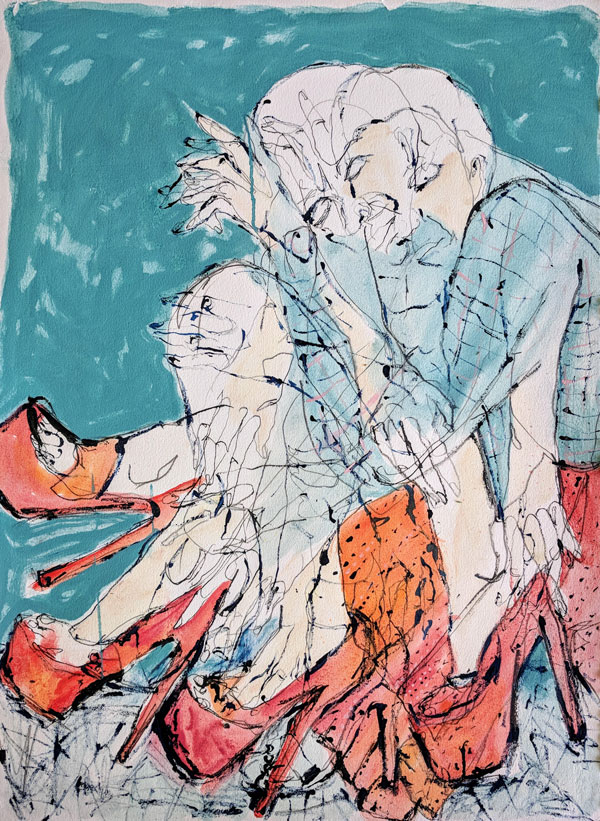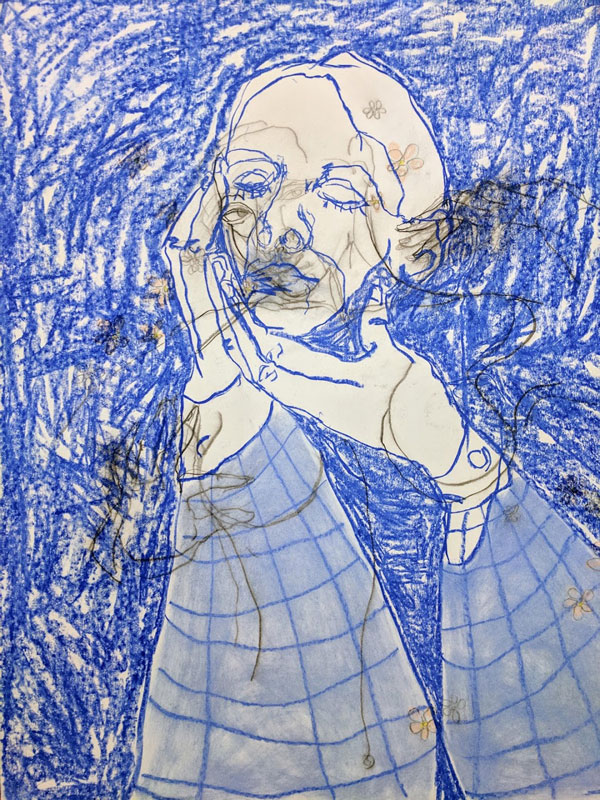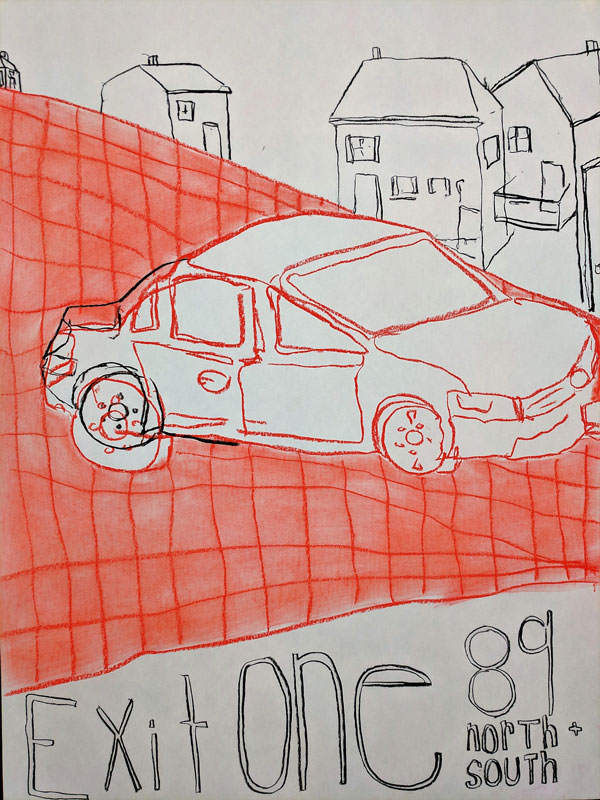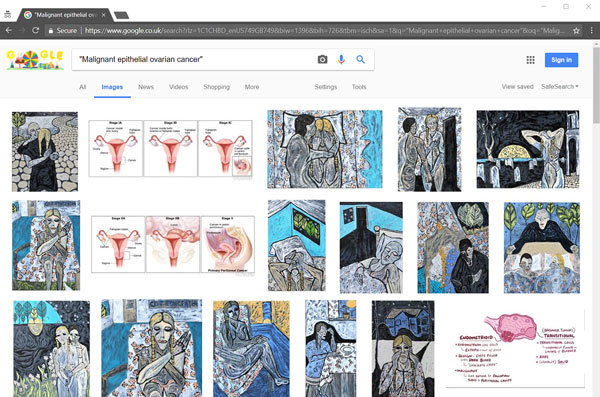How to describe Gretchen Andrew’s practice? Her website proclaims her a “search engine artist and internet imperialist who programs her paintings to manipulate and dominate search results.” Piggy-backing on the Google phenomenon, Andrew has slyly infiltrated the World Wide Web. For example, an image search for “powerful person,” which one would expect to produce images of presidents and world leaders, now also displays drawings, many of which link to the curiously titled website www.powerful-person.com. Thanks to Andrew, many Google image searches are now filled with drawings and paintings she created, cleverly tagged and posted to myriad sources so that search results include her images and websites.

img alt=”made-for-women-1, oil on paper, 30 x 22 in., 2018.
The self-taught LA-based painter earned a degree in Information Systems from Boston College and has worked for Intuit and Google. When interviewing for her first tech job, she let on that she knew a wide range of programming and scripting languages. Not exactly true, so before starting, she used the internet to teach herself the basics of JavaScript, XML, PHP and Python. While working at Google she realized this “dream job” was not her dream and decided to become a painter. She taught herself to paint in much the same way she learned to program—using YouTube videos. This ultimately became a series of works entitled “HOW TO HOW TO HOW TO” (2017), in which Andrew investigated what it was possible to learn (or not learn) by watching YouTube videos. Presented online as animated GIFs, documentation of performances and video clips, “HOW TO” questions the absurd notion that anything can be learned online. Andrew’s topics range from the practical to the ridiculous: how to be perfect, how to draw, how to write a novel, how to die, how to be sexy, how to be religious, etc.
While living in London early in her art career, Andrew apprenticed with painter Billy Childish. She started making works that emulated his style which she posted online, titled “after Billy Childish.” Search engines soon began displaying these as by Childish, a fact that fascinated Andrew, spawning her “practice of exposing where search engines and related technologies fail to understand and reflect the complexity of our world.” Andrew has also infiltrated and manipulated internet image search results for her hometown of Bow, New Hampshire, “Malignant Epithelial Ovarian Cancer,” and “Perfect Female Body.”

img alt=”powerful-person-1”, pastel on paper, 24 x 18 in., 2018.
How does this work? Andrew makes paintings and drawings in her own quirky, semi-realistic, expressive style and uploads images of these to a wide range of websites, carefully key-wording and attaching meta-data that privileges them in internet searches. She also creates URLs for these paintings/concepts.

img alt=”bow-new-hampshire-18-4, charcoal and pastel on paper, size 24 x 18 in., 2017.
Andrew’s purpose is multifaceted. For example, she created paintings to humanize the experience of having cancer to counter the dominance of clinical diagrams in search results. Similarly, she changed results for the terms “perfect female body” and “made for women” in order to challenge how women are represented online. A search for “female conception” yields a page of Andrew’s drawings.
Her knowledge of how internet algorithms function allows her to alter search engine results, which she believes “sit at the intersection of representation and meaning.” Her work expands existing archives of representations to offer a different truth.


